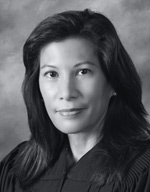Civil rights groups have filed a lawsuit against a Northern California superior court over its practice of suspending the driving licenses of people too poor to pay what advocates consider exorbitant fees for relatively minor offenses. The San Diego Union-Tribune explains that “… the complaint filed in Solano County Superior Court by the American Civil Liberties Union of Northern California and others claims the court’s actions violate both the state’s vehicle code and due process protections… the legal action comes as lawmakers across the country are recognizing the impact of escalating fines and fees on impoverished people who either go into debt trying to pay off the ticket, or face suspension of critical driving privileges needed to work.”
The report notes that “… last year, California Gov. Jerry Brown announced an amnesty program for certain drivers, calling the traffic court system a ‘hellhole of desperation’ for the poor.” The process of shifting relatively minor offenses, the sort that do not rise to criminal charges that would require legal representation, into jail-worthy offenses has come under fire nationwide. Car-related offenses are one of the biggest issues.
Read the story here: ACLU sues Northern California court over license suspensions


